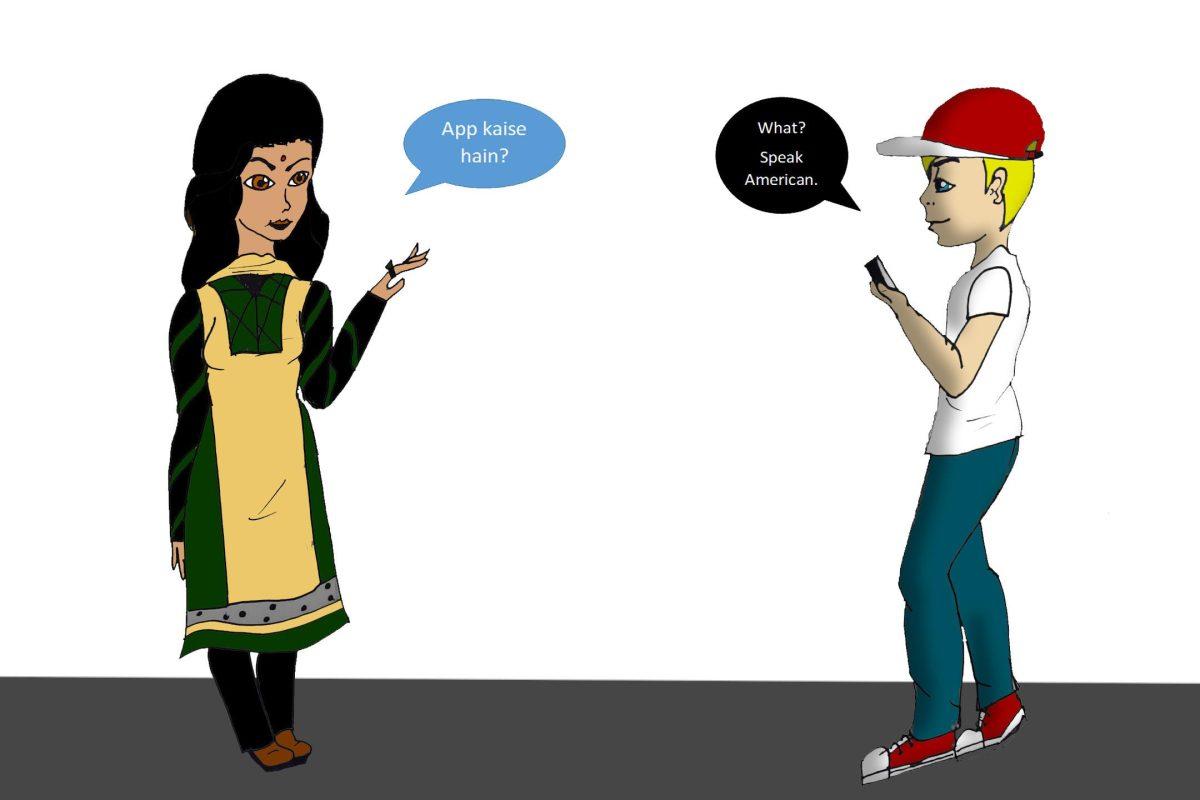News flash: English is not the official language of the United State.
Although English is the language used in formal speech in the U.S., we can’t expect everything to be centered around our English-speaking needs.
An intelligent person is culturally aware the world consists of thousands of different languages, and English is only one of them.
Many people would love to be fluent in another language because it is extremely beneficial in several ways. The benefits to learning a second language are endless: greater job opportunities, more cultural awareness, more brain power, more entertainment access and much more.
I would be thrilled to be bilingual, but for some people — like myself — it’s like gibberish trying to learn a new language.
Being open to other languages but having difficulties learning them is different from assuming that, because we are in America, we only need to know how to speak English. According to a YouGov poll, 28 percent of Americans don’t find it necessary to know another language because the majority of the people they know speak English.
In high school, my Spanish class had the opportunity to Skype with another high school in Colombia, South America. They had to speak English to us, and we spoke Spanish to them. Much to my surprise, the students in Colombia were speaking English like it was their first language, while my class struggled and needed constant help from the teachers.
The problem was Spanish was only spoken within the 55-minute class period. Once we left the classroom, we had no interest in speaking Spanish. It’s impossible to try and learn a second language when you’re not incorporating it into everyday conversation.
That’s when I realized how closed-minded Americans can be.
According to a poll by the Guardian, 54 percent of Europeans have the ability to hold a conversation in another language.
The saddest part is we are so used to thinking we only need to understand and speak English. When we go to other countries, we expect the natives to speak at least some English. That is self-centered at its finest.
Crossing the language barrier would be best accomplished starting with young people. According to research done by Little Pim, a language program aimed at teaching children, “infancy and early childhood is the ideal time to immerse your child in a foreign language.”
As children, we would be more willing to learn a foreign language if we knew how it would actually help us in our future endeavours.
Drawing awareness to the importance of knowing another language is crucial. According to Language Stars, “Exposing your child to a second language while young allows him or her to optimize his or her learning potential, helping to shape the brain at its most flexible stage.”
You can take several years of a foreign language in school, but if you don’t understand the importance of it, it’s useless. Just like in a class such as calculus, you may be reluctant to learn it because you don’t know how it will benefit you in the future.
It is possible to get by only knowing English in the U.S., but we need to stop assuming the world revolves around us. In no way is learning a new language easy, but it is certainly beneficial and pays off in the long run.
Clarke Perkins is a 19-year-old political science sophomore from New Orleans. You can reach her on Twitter @ClarkePerkins.
Opinion: Americans should learn other languages besides English
September 28, 2015
Other languages
More to Discover








